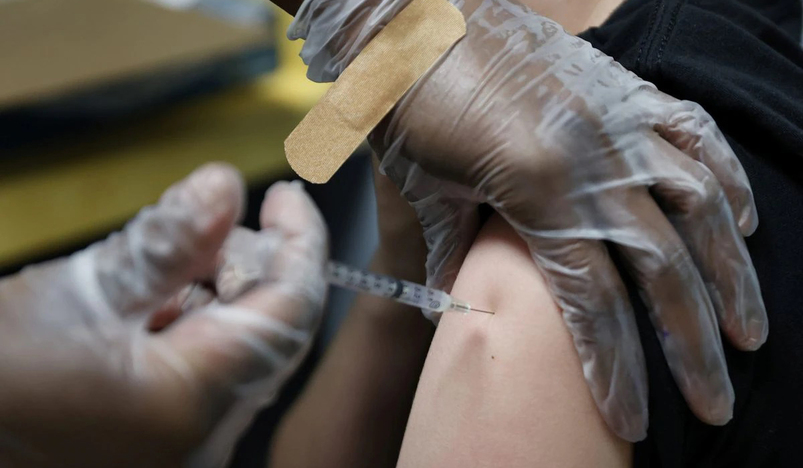
A teenager is inoculated with Pfizer's vaccine against coronavirus disease (COVID-19)
The Primary Health Care Corporation (PHCC) has called on parents and guardians to vaccinate their young adolescents aged between 12-15 years, stressing the importance of vaccination for this age group to prevent the spread of COVID-19 virus to the rest of the family, in particular, to older persons and those with chronic diseases and weakened immune systems, as well as reducing virus mutation rates to new strains and achieving community immunity.
PHCC has called on parents, guardians, and community members to avoid rumors and unofficial and false news published in the media and on social media about experiencing symptoms and side effects of vaccination, asking them to obtain COVID-19-related information only from reliable and official sources.
PHCC has conducted a Qatari scientific study, the first-of-its-kind in the world, investigated by a research team from the corporation under the supervision of Dr. Mariam Abdelmalik, Managing Director of PHCC, with the participation of a number of researchers and experts. The study was published in early Septembers issue in the "Vaccines/MDPI" Journal, a prestigious international scientific and medical journal.
The research study concluded that "many evidence indicates that children and adolescents are less likely to develop severe symptoms as a result of COVID-19 infection, however, there are cases in which some suffer from severe complications that may lead to death or long-term symptoms such as multisystem inflammatory syndrome. Therefore, the COVID-19 vaccine is an important step towards protecting the community and limiting the transmission of the virus through children and adolescents to family members and those who are more susceptible to infection, thus reducing the chance of mutation to strains that can resist the available vaccines."
In this context, Dr. Sarah Rashid Musa, Community Medicine Specialist, stressed the importance of vaccination for all eligible groups, as many clinical trials have found that people fully immunized with Pfizer or Moderna vaccines are less likely to develop symptoms of infection, be hospitalized, or develop serious complications and transmit infection to others, noting that there was an overall lower morality rate associated with COVID-19 virus as compared to unvaccinated people.
Regarding the reasons of vaccination resistance, Dr. Sarah Musa indicated that fear of side effects or mistrust/misinformation related to the vaccine, could be attributed to higher vaccine hesitancy among Gulf Countries, especially that holiday travels that mandate COVID-19 vaccination certificate, were not seen as necessary in comparison to other nationalities for their intentions of returning to their home countries (particularly after summer 2020 during the first phase of the pandemic, when many expatriates chose not to fly out due to the associated complexity and risks).
The researchers believe that parents probably need more reassurance over time, especially as the authorization of the vaccine by the FDA was released just two days preceding the commencement of the 12-15-year of age population vaccination campaign in Qatar. Another contributing factor could also be related to rumors, misinformation received from media or acquaintances.
Through this study, researchers have recommended strengthening the role of local public health strategies in providing more evidence-based updates on vaccine efficacy and safety among children/adolescents to enhance vaccine confidence. Health care authorities should also consider establishing channels of communication with communities through physicians based on their credibility with the public.
The results of this study will provide insight into potential indicators of vaccine hesitancy and provide preliminary information on future COVID-19 vaccination campaigns for children and adolescents. The findings have implications for planning effective communication strategies specifically targeting Gulf populations, parents of younger adolescents and those previously infected with COVID-19 to build community trust and vaccination confidence, potentially curtailing asymptomatic viral circulation, increasing COVID-19 vaccine uptake and achieving herd immunity. The results of this study were also validated by international studies.
SOURCE: QNA
.jpg)
Qatar Secures Place Among the World's Top 10 Wealthiest Nations
.jpg)
Hamad International Airport Witnesses Record Increase in Passenger Traffic

Saudi Arabia: Any visa holder can now perform Umrah

What are Qatar's Labour Laws on Annual Leave?
Leave a comment